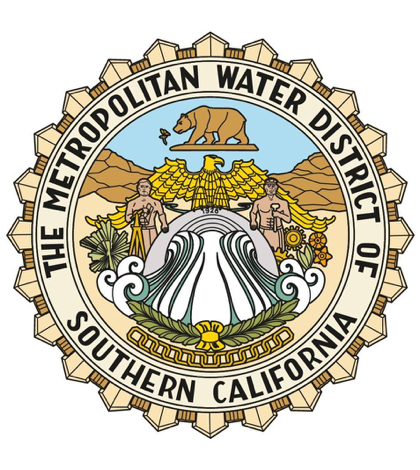The board of directors of the Metropolitan Water District of Southern California voted on Tuesday and has now authorized the funding of $10.8 billion for the full construction of the California WaterFix project. The full project – estimated to cost $16.7 billion in total – will include building three new water intakes in the northern Sacramento-San Joaquin Delta and two tunnels to carry the water under the Delta to the existing aqueduct systems in the southern Delta that deliver water to cities and farms.
“For decades, we have sought a solution to the problems of the Bay Delta, problems that put Southern California’s water supply at risk,” said Metropolitan Board Chairman Randy Record. “We finally have that solution, California WaterFix. We simply could not jeopardize the opportunity to move this long-sought and much-needed project forward.”
California WaterFix is the state’s controversial project intended to resolve the aging water infrastructure from the Sacramento-San Joaquin Delta into the Los Angeles basin and beyond. The current water delivery system is badly outdated. Its ecosystem is in decline and its 1,100-mile levee system is increasingly vulnerable to earthquakes, flooding, saltwater intrusion, sea level rise, environmental degradation and even the effects of climate change.
Approximately 30 percent of Southern California’s water comes from the Bay Delta. Metropolitan’s financing of the full project is expected to cost households an average of up to $4.80 a month. However, that average cost could be reduced as Metropolitan recoups some of its investments from the agricultural sector. Metropolitan will be selling or leasing capacity in the tunnels to allow water deliveries or exchanges for other parties.
But not all water agencies are in support of WaterFix. Most notably, the Westlands Water District, in Central California’s San Joaquin Valley agricultural region, opted out of supporting WaterFix last fall when its board of directors determined the project did not merit its support or its financial backing.
However, the majority of federal agricultural contractors who also import supplies via the Delta have yet to commit to investing in the project, leaving part of the project’s costs unfunded. In February, the state proposed building the project in stages instead–starting with two intakes and one tunnel, with a capacity of 6,000 cubic feet per second (cfs). An additional intake and tunnel would be added when funding allowed.
Initially Metropolitan’s board voted last October to participate in WaterFix and contribute up to 26 percent of its $17 billion cost, or about $4.3 billion. However, with Tuesday’s vote the board chose between supporting the staged construction of the project or helping finance the full 9,000 cfs project all at once.
The California WaterFix is one of Governor Jerry Brown’s major projects and one he wants to see on solid ground before his term ends in the coming months. The two tunnels project would feature 40-foot-diameter tunnels, buried 150-feet underground and capturing water that otherwise would flow out to the ocean during storms. The design touts the fact that it would convey water to the southern half of the state without harming the ecology, fish or other fragile species.
“Two tunnels better accomplishes WaterFix’s co-equal goals of improving the environment and securing supply reliability,” said Metropolitan General Manager Jeffrey Kightlinger. “With them, we’re better able to capture the high flows of big storms that climate change is expected to bring. We’ll better address the reverse flows that disrupt the Delta’s ecology. And we’ll have more flexibility to operate the water delivery system.”
Kightlinger added that investing in WaterFix does not change Metropolitan’s commitment to local supply development and conservation.
“This investment is just one part of ensuring Southern California and its $1.3 trillion economy has a reliable water supply in the age of climate change,” he said. “We need a diverse portfolio, including water recycling, storm-water capture, and increased conservation. We will continue to work hard and invest in those projects.”
Under the staged approach, the cost of building one tunnel is estimated to be about $11.1 billion, with Metropolitan’s share of those capital costs coming in at $5.2 billion. The board ultimately voted to support building the full project all at once at an estimated cost of $16.7 billion, with Metropolitan’s investment at about $10.8 billion in today’s dollars.
 California Water News Daily Your Source For Water News in California
California Water News Daily Your Source For Water News in California


